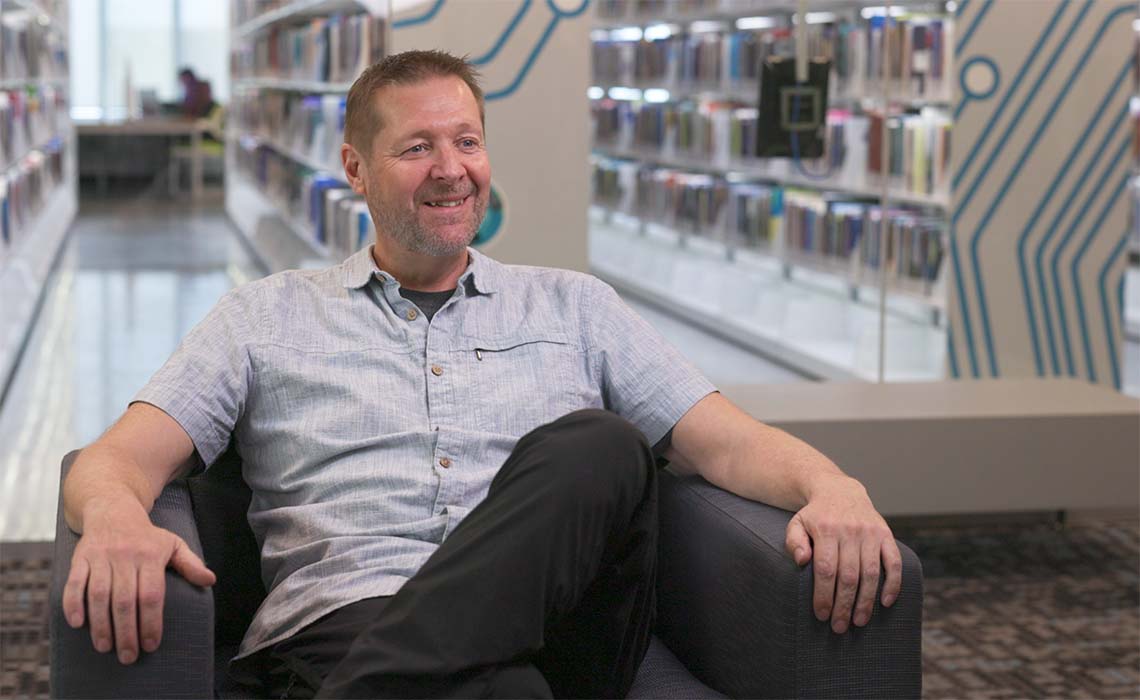Building VR worlds for therapy and learning

It’s no surprise that nature lowers anxiety levels and just makes us feel better in general. Studies from all around the world have the evidence to back up that claim and Mount Royal psychology professor Dr. Anthony Chaston, PhD, has witnessed it himself.
With a love of hiking and the outdoors his whole life, Chaston set out to explore nature’s benefits, but by using virtual reality (VR). Could experiencing nature in VR result in the same benefits as actually being in nature?
“I wanted to see if I could research things I noticed in myself,” Chaston says. “Nature in VR lowers my anxiety level. I build nature worlds in VR and the act of building them is nature therapy for me.”
Chaston began a research study and invited participants into his lab, where they put on a VR headset and experienced a designed outdoor space created by Chaston. Their anxiety level is measured both before and after the experience. So far, results are indicating that experiencing nature in VR can indeed reduce anxiety in most. Chaston is now studying what types of environmental elements are most successful at reducing anxiety.
Chaston also helps build VR experiential spaces for the students, where their classroom becomes a VR world they learn in and interact with. He uses the DEW (discovery, exploration, wonder) pedagogical model for building these classroom experiences.
“What we’re doing in the lab with one of my honours students is testing that model and creating a lesson, adding levels of enrichment for the students as they move through this virtual space. And we hope that by learning the lesson in that digital immersive space, the immersion will increase the amount that they learn and also increase their enjoyment.”
Chaston’s research team of five students works on all aspects of the nature therapy and VR classroom projects. They are currently gathering data from the nature therapy participants.
His research projects are mutually beneficial, Chaston says. Students get to experience lab work and not have to compete for time with graduate students. And while they bounce ideas off each other and share with new ideas, their creativity and experience help Chaston fill in his own knowledge gaps.
Beyond the experiential advantages, Chaston hopes his research shows students that psychology isn’t just theory and textbooks. It has applied real-world outcomes that can improve lives.

